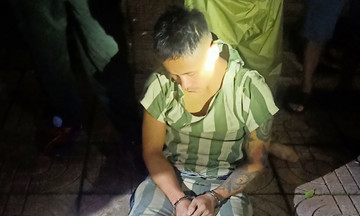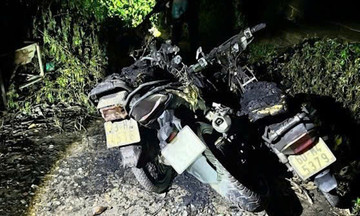23-year-old Katarzyna Zowada, a student in Krakow, vanished on 12/11/1998. She had an appointment with her mother at a clinic in the Nowa Huta district for therapy but never arrived.
Katarzyna was described by her family as shy, reserved, and sensitive. She struggled with depression following her father's accidental death, blaming herself and feeling guilty for suggesting the trip that led to the accident. By late 1998, she sought professional help for her depression.
Worried when Katarzyna missed her therapy appointment, her mother contacted the police. Initially, authorities assumed she had simply missed her appointment and would return soon, deeming it too early to file a missing person report. Weeks turned into months with no sign of Katarzyna, and her whereabouts remained a mystery.
On 6/1/1999, a tugboat captain on the Vistula River reported something entangled in the propeller. This wasn't unusual, as debris often got caught. However, this time it wasn't debris. To their horror, the crew discovered human skin, belonging to a woman's upper body, treated and sewn into what appeared to be a bodysuit. DNA testing confirmed it belonged to Katarzyna Zowada.
 |
The tugboat docked where Katarzyna Zowada's remains were found. Photo: Małopolska Policja |
The tugboat docked where Katarzyna Zowada's remains were found. Photo: Małopolska Policja
On 15/1, authorities found Katarzyna's right leg in the river. Despite extensive searches, the rest of her remains were never recovered.
Initially, investigators believed Katarzyna's body had been thrown into the river and mutilated by the propeller. However, forensic analysis revealed she had been dismembered, the skin from her upper body meticulously crafted into a wearable bodysuit. The killer may have even worn it.
The case became one of Poland's most shocking murder investigations, drawing comparisons to Buffalo Bill from The Silence of the Lambs. The investigation stalled due to scarce leads. Katarzyna's family couldn't imagine anyone wanting to harm her, let alone so brutally. The killer's identity and motive remained unknown.
Some experts believed the motive was sexual, but others argued that most sexually motivated killers re-offend, and no similar cases occurred in Poland. Others speculated about a ritualistic killing.
In 2000, the investigation was suspended due to lack of progress. In 2012, with advances in forensic science, authorities reopened the case, exhuming Katarzyna's remains for further examination. Expert Duarte Nuno Vieira concluded she suffered immensely before death. She was beaten, tortured with a knife while still alive, and died from blood loss.
The brutality attracted international attention. Experts, including FBI representatives, assisted, but the case remained unsolved. They profiled the killer as a violent male with a strong desire for control, knowledge of human anatomy, and surgical skills.
In 10/2017, after nearly two decades with no real progress, Polish authorities arrested 52-year-old Robert Janczewski. He had been a person of interest since 1999 but there wasn't enough evidence to arrest him.
Robert fit the profile: a history of harassing and assaulting women, physically strong, and knowledgeable about anatomy. He had worked in a lab, dissecting human bodies. He was also fired from the Krakow Zoological Institute after killing and skinning rabbits under his care.
After receiving a letter from Robert's friend about him, with undisclosed contents, the police considered him the prime suspect. A search of his home on 4/10/2017 revealed bloodstains in the bathroom. Reports of Robert visiting Katarzyna's grave strengthened their suspicions.
Robert denied knowing Katarzyna and maintained his innocence, but he was charged with murder with extreme cruelty. News of his arrest renewed public interest in the case, already infamous as one of Poland's most horrific crimes.
Katarzyna's mother hoped for justice after years of waiting. However, despite the evidence, on 31/10/2024, the Krakow Court of Appeal acquitted Robert. He was released from prison. The case remains a mystery.
Tue Anh (ATI)












